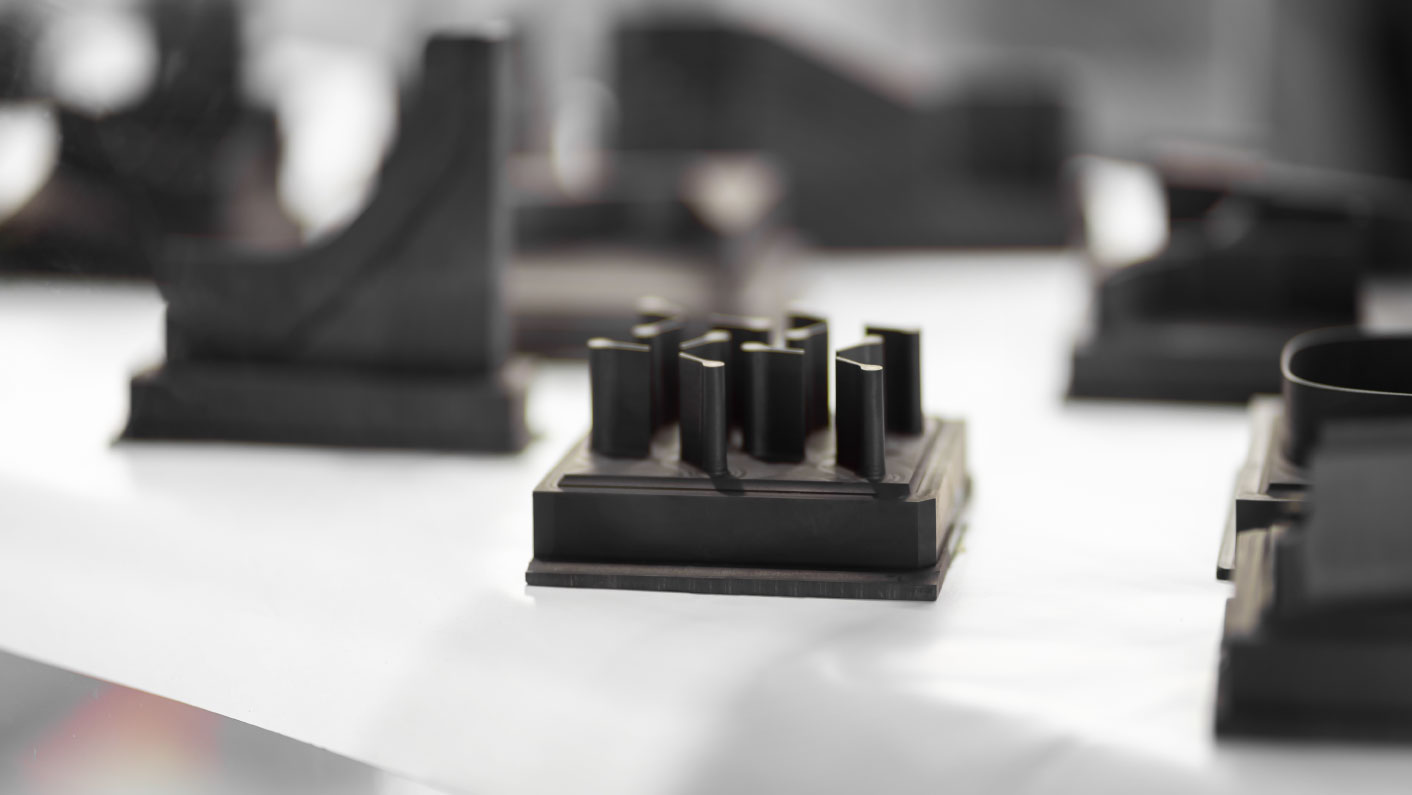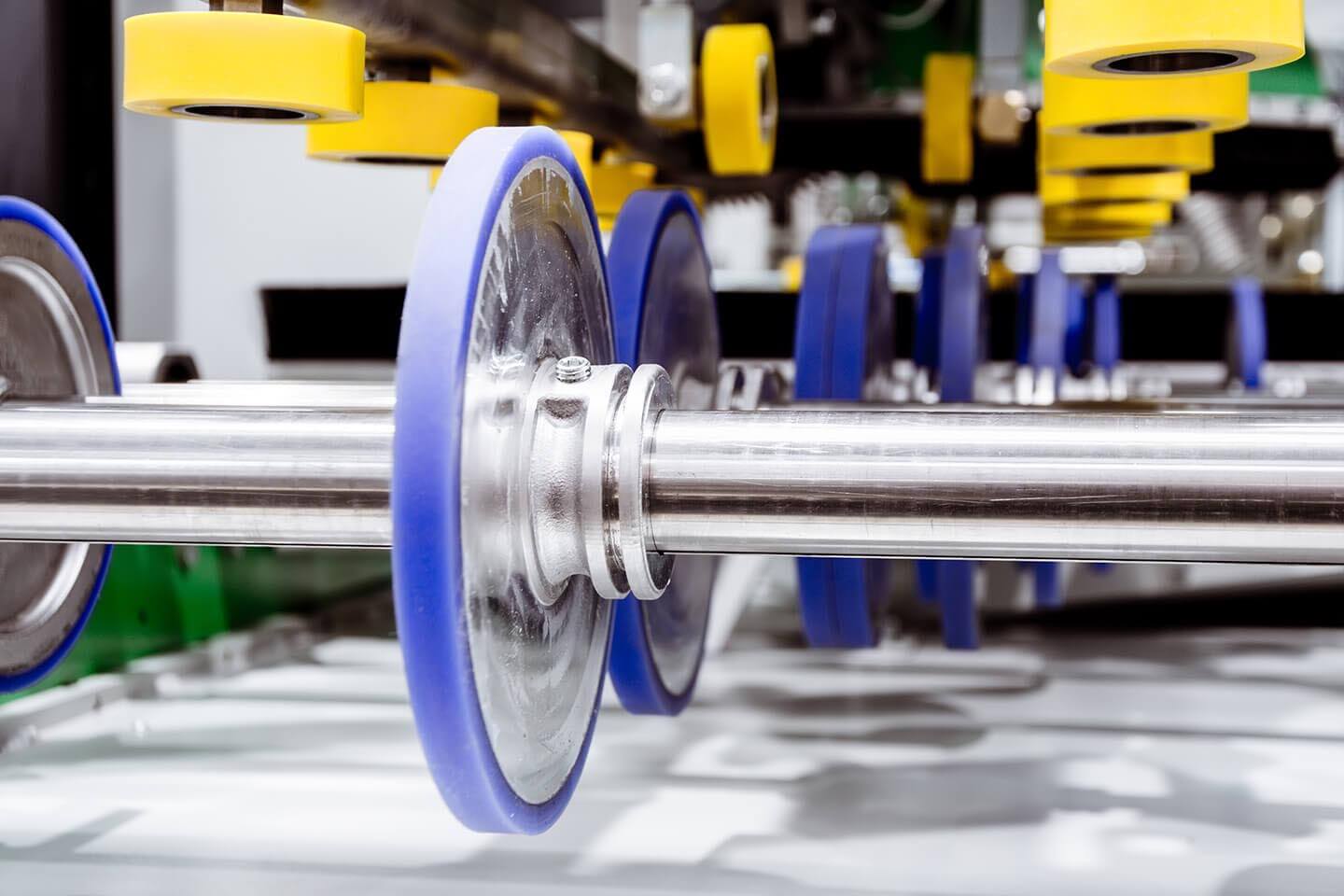
For over 50 years, PSI Urethanes has created urethanes that are stronger, tougher and more durable than products made from conventional elastomers and plastics. Urethanes also offer the engineer a remarkable range of physical properties to choose from. It is important to understand the chemistry of urethanes in order to select the right materials for your specific application.
Polyurethane is an elastomer that is formed by the reaction of isocyanate and polyol. The polyol is combined with an isocyanate to create a pre-polymer. The most common isocyanates are TDI and MDI, however, there are several others that are used in specialty applications. Generally speaking, TDI delivers good properties at high temperatures while MDI delivers good properties at low temperatures.
There are also two common types of polyols: polyether and polyester. The properties and performance of the polyurethane depend on which polyol is used. Polyester urethane and polyether urethane are both elastomers, which means they possess elastic properties. Both polyester and polyether are highly effective in a diverse range of industries and offer unique performance properties. For example, esters often exhibit greater abrasion and chemical resistance whereas ethers provide excellent shock absorption and are more UV and wear resistant. Additionally, esters can endure higher temperatures for longer periods of time while ethers are often the best choice for extreme cold temperatures. Choosing the right type of polyurethane starts with understanding how the material’s chemical composition can affect your product’s performance and durability. The remainder of this article will focus on the differences between polyester and polyether and how OEMs can determine which polyol is right for their application.
Polyester & Polyether Urethane Properties
Polyester and polyether each have different advantages and disadvantages and are suitable for different applications. Below is a comparison of the physical properties of polyesters and polyethers to help you decide which is best for your application. To learn more about the differences, watch our short video on urethane polyethers vs polyesters.
- Abrasion Resistance: urethanes are known for their outstanding abrasion resistance. There are two types of abrasion: sliding and impingement. Sliding refers to scraping and rubbing abrasion while impingement refers to particles or objects striking the urethane surface at a high angle. Polyester has a high capacity for sliding abrasion resistance which makes it ideal for applications like scraper blades and chute liners. Conversely, polyether offers excellent impingement abrasion resistance which makes it the choice for sandblast curtains and bumpers that get hit head-on.
- Heat Resistance: both polyester and polyether urethanes perform well at elevated temperatures. Polyesters withstand high temperatures longer and are more resistant to heat aging. Polyethersare much less susceptible to dynamic heat build-up. That is why they are the choice for high-speed rollers where the rapid flexing creates heat.
- Low Temperature Flexibility: all elastomers (rubbers, urethanes, silicones, etc.) get harder and less flexible as temperatures drop and will eventually reach a temperature at which they become brittle. Urethane’s brittle point is between -40°F and -100°F depending on the formulation. Polyurethanes can withstand sudden and dramatic temperature drops without cracking. And even at their highest hardness levels, polyurethanes have a better impact resistance than most plastics. Polyether is less affected by cold temperatures than polyester.
- Cut and Tear Resistance: urethanes are known for their toughness; however, polyesters have higher tensile strength and higher cut and tear resistance than polyethers.
- Water and Moisture Resistance: if the product is to be submerged or used in a very humid condition it should be a polyether because polyether has excellent hydrolytic stability.
Would your project benefit from a custom urethane part?
Contact PSI to learn about our custom urethane solutions and the formulation options we offer including polyesters and polyethers.
- Chemical Resistance: if the product will come in contact with oils, fuel or solvents – including vapors – your choice should be a polyester urethane as they are more resistant to attack from these harsh chemicals.
- Durometer (Hardness): both polyesters and polyethers can be made to any hardness from marshmallow-soft to bowling ball hard.
- Rebound: products such as skate wheels need to return the energy they absorb when your foot pushes them into the pavement, which is known as rebound. Polyether provides much higher rebound than polyester and, therefore, is the better choice for applications like skate wheels and high-speed rollers.
- Shock Absorption: sometimes you need the product to absorb the energy it receives, which is the opposite of rebound. Polyester is the choice for shock absorption and is used widely in vibration dampening applications.
- Food Grade: both polyesters and polyethers can be formulated for MDI and TDI food grade applications.
PSI’s Custom Urethane Solutions
Polyurethanes offer a diverse set of physical properties, both esters and ethers. Selecting the right material can sometimes be overwhelming for OEMs. For this reason, it is crucial to partner with proven urethane experts, like PSI. Our in-house engineering and technical assistance staff can help you create custom urethane molded parts that meet your application needs and solve your problems. We have a wide range of formulations that can be geared specifically to your requirements. Below are some highlights about our custom urethane solutions.
- Custom Materials: our in-house resins include TDI ethers and esters, MDI ethers and esters, and aliphatic resins. If you require a resin that we do not carry in-house, we can order it and manufacture your products.
- Broad Range of Durometers: using the above resins, we can manufacture durometers from 25 shore OO (soft as a marshmallow) to 70 shore D (hard as a bowling ball). All of our polyurethane formulations can be produced in a wide variety of shapes and sizes.
- Custom Molds: our in-house mold making shop allows us to produce your custom production orders fast. PSI produces urethane products ranging in size from less than a gram to over 2500 pounds. Cast polyurethane is an ideal material for constructing parts that require tough physical properties and superior impact resistance.
- Bonding and Recovery: we can bond our polyurethane to metal and many other substrates. If you have rollers or wheels that need to be recovered, we can strip off the old material and recover them with the polyurethane formulation that best fits the application.
- Prototypes to High Volumes: our fully equipped manufacturing facility includes a versatile range of processing machinery, which allows us to work on unique, one-of-a-kind projects, as well as high volume components. We are also known for our willingness to do short-run production and prototypes.
About PSI Urethanes
Since 1966, through our own independent research and activity in the Polyurethane Manufacturers Association, PSI Urethanes has stayed on the leading edge of urethane technology – including developing advances in new materials, comprehensive designs, and processing technologies. Today we are among the most respected and trusted suppliers of custom urethane products.
We operate from our 45,000-square-foot manufacturing facility in Austin, Texas, which houses an extensive stock of polyurethane products. Our fully equipped manufacturing facility includes a versatile range of processing machinery, which allows us to work on unique, one-of-a-kind projects, as well as high volume components. Our in-house engineering, tooling, and custom mold shop, produces custom and stock production orders with exceptionally fast turn-around times. From conception to prototyping, to final production runs, our technical representatives and design engineers will work closely with your staff to meet your critical tolerances and specifications. You are guaranteed to receive experienced, professional, and personalized service from the first contact through your on-time delivery, with complete confidentiality and dedication to protecting your good name.
PSI Urethanes specializes in custom urethane products. Contact us today to see how we can help with your next manufacturing project, or give us a call at 1-800-888-5156.

